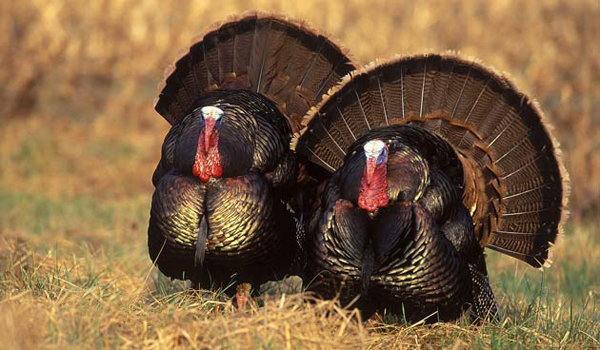Five Fascinating Turkey Truths
Get the world’s most fascinating discoveries delivered straight to your inbox.
You are now subscribed
Your newsletter sign-up was successful
Want to add more newsletters?

Delivered Daily
Daily Newsletter
Sign up for the latest discoveries, groundbreaking research and fascinating breakthroughs that impact you and the wider world direct to your inbox.

Once a week
Life's Little Mysteries
Feed your curiosity with an exclusive mystery every week, solved with science and delivered direct to your inbox before it's seen anywhere else.

Once a week
How It Works
Sign up to our free science & technology newsletter for your weekly fix of fascinating articles, quick quizzes, amazing images, and more

Delivered daily
Space.com Newsletter
Breaking space news, the latest updates on rocket launches, skywatching events and more!

Once a month
Watch This Space
Sign up to our monthly entertainment newsletter to keep up with all our coverage of the latest sci-fi and space movies, tv shows, games and books.

Once a week
Night Sky This Week
Discover this week's must-see night sky events, moon phases, and stunning astrophotos. Sign up for our skywatching newsletter and explore the universe with us!
Join the club
Get full access to premium articles, exclusive features and a growing list of member rewards.
5. Turkeys can fly

The most popular question regarding turkeys this holiday season is probably "is it ready to eat?" But the season's most popular bird has some surprises up its feathery sleeve. They can fly! And not all gobble. Here are five turkey truths from Life's Little Mysteries.
Not only can wild turkeys fly, but they can do so for short bursts at up to 55 mph. The wild turkey's habit of feeding on the ground might explain the myth of their flightlessness, but many can fly high enough to roost in trees. Domestic turkeys, however, such as the Broad Breasted White turkey, which is the most widely-used breed commercially, cannot fly because their meat holds them down: They have been bred to be much heavier and with a larger breast.
4. Turkeys sleep in trees

Although turkeys are often thought of as being anchored to the ground, wild turkeys actually spend their nights perched atop of tree branches. This keeps them high above their natural predators, which include coyotes, foxes, skunks, raccoons, snakes and dogs. When they wake up, turkeys give a series of soft yelps before descending; it's a "good morning!" call to make sure that the rest of their roosting group is okay after a night of not seeing or hearing one another.
3. Turkey eggs aren't profitable

Turkey hens produce larger eggs than chickens do, and they require more nesting space than chickens, which usually live in cramped coop conditions. Turkeys also lay fewer eggs and start popping them out later in life than chickens, the champion egg-producers. Some turkey breeds are also very protective of their eggs, which can make collecting the eggs more challenging. For farmers, raising turkeys for meat is easier and more profitable than trying to sell turkey eggs, although some organic farm stands and natural foods stores do carry them.
2. Female turkeys don't gobble

A female turkey is called a hen and the male turkey is called a gobbler and for a good reason. Only male turkeys make that adorable gobbling sound; hens cluck and make small, chirp-like noises. Each male turkeys use his unique gobbling and strutting skills to attract the ladies.
1. Ben Franklin recommended the wild turkey as the national bird

According to the Library of Congress records, Benjamin Franklin stated in 1784 that:
"For my own part, I wish the bald eagle had not been chosen as the representative of our country; he is a bird of bad moral character; he does not get his living honestly...like those among men who live by sharping and robbing...he is generally poor, and often very lousy. Besides, he is a rank coward; the little king-bird, not bigger than a sparrow, attacks him boldly and drives him out of the district...For in truth, the turkey is in comparison a much more respectable bird, and withal a true original native of America. Eagles have been found in all countries, but the turkey was peculiar to ours..."
Get the world’s most fascinating discoveries delivered straight to your inbox.
If Ben had had his way, I wonder if we would be eating bald eagles on Thanksgiving?
Got a question? Email it to Life's Little Mysteries and we'll find an expert who can crack it.
 Live Science Plus
Live Science Plus










